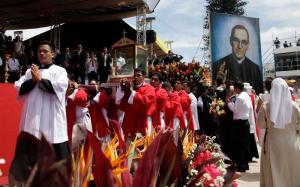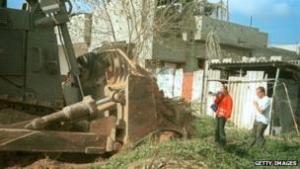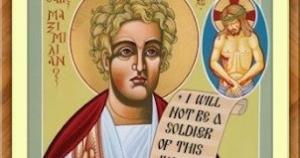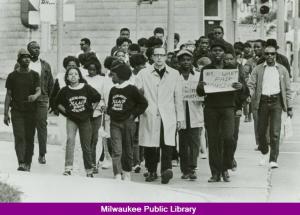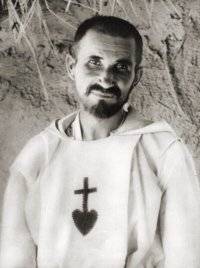
Today is for beginnings. It’s the first day of Advent, which begins the Church’s liturgical year. And it happens to be December 1, the day I turn back to the beginning of my favorite book of daily prayers, Common Prayer: A Liturgy for Ordinary Radicals. This day I begin a new series on heroes of faith inspired by that book. Every two or three days on average, the book introduces a heroic person (often but not always one of the Catholic official list of saints). Each one has contributed in some way to what the book calls “new monasticism.” Today’s hero is Charles de Foucauld.
For this post, in addition to information on Charles de Foucauld, I will introduce my favorite prayer book.
Charles de Foucauld
Today’s prayer begins with the following paragraph on Charles de Foucauld:
While working in the North African desert after a dishonorable discharge from military service, Charles de Foucauld was impressed by the piety of Muslims and experienced a dramatic recovery of his Christian faith. He spent a number of years in a Trappist monastery before hearing the call to a new monasticism among the working poor. “I no longer want a monastery which is too secure,” he wrote. “I want a small monastery, like the house of a poor workman who is not sure if tomorrow he will find work and bread, who with all his being shares the suffering of the world.” Though Foucault died in solitude, the Little Brothers and Sisters of Jesus, inspired by his life and witness, have started communities of service among the poor and outcast around the world.
More facts about Charles de Foucauld
- Born in Strasbourg, France, 1858; assassinated in Tamanrasset, Algeria, 1916.
- Charles was from a wealthy Catholic family, gave up belief in God, and lived for pleasure and excitement before reconverting to God and Catholicism.
- He was orphan, heir to a fortune, cavalry officer, explorer, geographer, priest, hermit, and unsuccessful founder of a religious community.
- His discharge from military service was a result of his refusing to leave behind his mistress, Mimi.
- Charles became famous for his work as an explorer and geographer of a region in Morocco where his Christian background put him in danger. He spent a year disguised as a Jewish rabbi and taking copious notes, which became a popular book.
- He spent his last 12 years among the Tuareg people of Algeria, wrote a Tuareg-French dictionary, translated the Gospels into Tuareg, and wrote a book of poetry in Tuareg.
- Charles desired the conversion of all people to Jesus but made only one convert in his life, a man he had freed from slavery.
- He said, “It is not necessary to teach others, to cure them or to improve them. It is only necessary to live among them, sharing the human condition and being present to them in love.”
- Charles de Foucauld modeled multi-culturalism before that word came in common use. He is a model for our time of polarization.
Common Prayer: A Liturgy for Ordinary Radicals
I discovered Common Prayer in a thrift shop and began using it immediately. While tending an antique shop near Glacier Park, Montana, I fell into a conversation with a young Mennonite couple. I happened to have my copy of the book handy and showed it to them. To our mutual surprise we found they and I had been praying out of the same book. Later I found that my sister was using the book, too. Common Prayer (publisher Zondervan) appeals a wide audience.
The heart of Common Prayer is a morning prayer for each day of the year. A week’s worth of evening prayers and a set of occasional prayers complete the prayer offerings of this book. As the title indicates, the prayers follow a liturgical format, well-suited for group prayer. Morning prayer includes the following parts:
- A standard invitation to prayer
- A song out of 50+ songs at the back of the book
- A psalm with repeated refrain
- One reading each from Old and New Testaments
- A short quotation often from an ancient Christian source or from a saint featured that day
- A time of prayer for others
- The Lord’s Prayer
- A concluding prayer echoing the theme of the day’s prayer
Liturgy, social justice, and “new monasticism”
The main author of Common Prayer is Shane Claiborne. Social justice activist as well as author, his search for a spiritual home took him through several traditions and, finally, to Anglicanism. The Anglican liturgical tradition inspires the book, but the book also departs from the Anglican Book of Common Prayer. The Introduction begins:
If you love liturgy, this book is for you.
If you don’t know what liturgy is, this book is also for you.
I was surprised to find kneeling, that distinctive Catholic posture, among the directions for evening prayer.
There is also a strong social justice orientation. I look forward to the days that feature a hero of faith. These range from early Fathers of the Church to contemporary Protestant and Catholic figures. Among the latter are Mother Theresa, Dorothy Day, and the newly sainted Oscar Romero. Sojourner Truth, Martin Luther King, Jr., and Gandhi also are among the book’s heroes. Many others are names that I hadn’t known.
Some thoughts from the Introduction:
- On liturgy: Common Prayer helps us to see ourselves as part of a holy countercxulture … orienting our lives around a different set of values than those we are taught by the empire and markets around us.… In an ever-changing world, liturgy roots us in the eternal.
- On community: What we discover is not just a poetic genius behind the words but a community in, with, and under the words…. If loving communion is at the core of the Trinity, then it is also the core of who we are.
- On time: We remember the holidays of the biblical narrative, rather than the festivals of the Caesars, and celebrate feast days to remember saints rather than war heroes. The church calendar … aims at nothing less than changing the wy we experience time and perceive reality…. It is about the movement of history toward a glorious goal – not just going up when we die but bringing God’s kingdom down – on earth as it is in heaven.
- Image credit: Wikipedia



